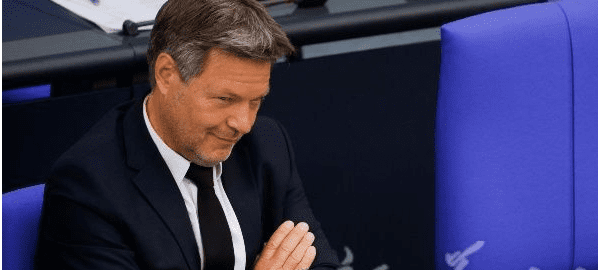Germany agreed to nationalize Uniper, its largest gas importer, in order to avoid a crisis while it fights energy shortages caused by Russia’s war with Ukraine.
This deal is a continuation of a July rescue package that saw Berlin take a 30% stake. It also includes a capital injection in excess of EUR8bn (or about PS7bn) from the government.
Fortum, the Finnish state-owned energy firm Fortum, had previously controlled Uniper. The announcement was welcomed by Fortum. Berlin will buy Uniper’s shares for EUR500m. This gives the state a 98.5% share in the gas company.
Markus Rauramo (Fortum’s chief executive) stated that “Under current circumstances in Europe’s energy markets and recognizing Uniper’s severe situation, the divestment is the right step to make, not just for Uniper, but also Fortum.”
“The role and outlook for a portfolio with a high proportion of gas have changed fundamentally since Russia attacked Ukraine. The business case for an integrated group has been weakened.
He stated that Uniper had suffered losses due to Russia’s cutting off natural gas supplies from European countries supporting Ukraine. This amount was almost EUR8.5bn. The price of gas has risen dramatically, so missing deliveries from Russia had to be replaced by expensive supplies on the open market.
Uniper, which also holds the Ratcliffe-on-Soar power plant in Nottinghamshire, suffered an overall loss of PS12bn and its share price has fallen by 90% over the past year.
Europe relies on gas for heating homes and electricity to power factories. This raises concerns about business closures, rationing, and a possible recession when the weather turns cold.
All across Europe, countries have struggled to cope with rising gas and electricity prices. They also sought to protect their energy supplies in winter by filling their natural gas storage.
Germany is now closer to gas rationing after its economic ministry warned on Thursday of a high risk of supply shortages long-term due to Russia systematically cutting off gas deliveries.
Robert Habeck, Economy Minister, announced the second phase of the three-phase energy emergency plan. This allows utility companies to transfer high gas prices to customers, thereby helping to lower demand.
According to the ministry, the reason for the warning was a decrease in Russian gas deliveries from 14 June due to continued high prices on the gas market. The ministry stated that if Russian gas supplies via the Nord Stream 1 pipe remain at the low level of 40%, it would be impossible to reach a storage target of 90% in December without taking additional measures.
Habeck stated that there wouldn’t be any need to ration gasoline, but added, “Of course. I cannot rule out it.” To avoid a winter of rationing, the plan was to make savings, increase infrastructure, and switch to other sources of energy in the hot summer months.
Germany’s efforts to replenish its gas reserves will face another hurdle next month when the Nord Stream 1 pipeline closes for its annual inspection on July 11. The pipeline will not be able to transport any gas. Although the inspection typically lasts about 10 days, Habeck expressed concern that Russia’s president might use it to stop all deliveries under technical pretexts.
Minister for economic and energy affairs stated that “there’s no point pretending” – the throttling of gas deliveries amounts to an economic assault on us by Putin. Putin’s strategy is to incite insecurity, drive up prices, and drive a wedge through society.
He said, “Even though it doesn’t feel that way yet, we are currently in a gas crisis.” “Gas will be scarce from now on.”
According to the Green party politician, the current crisis is also due to previous German governments being too dependent on Russian gas and not sufficiently diversifying its energy sources.
Habeck stated that “that is now coming back for us and must be rectified quickly,” during a press conference held on Thursday morning.
Germany is racing to get its gas storage units filled in time for winter. This is as Europe’s largest economy struggles to wean itself from Russian energy supplies, in the face of a possible European embargo and a potential Moscow decision to cut off all supplies.
The German government plans to build two new terminals for liquified natural gases on the North Sea coast, and to restart the remaining coal-fired power stations that were to be shut down. This is a controversial move among the Green party’s voters.
Gazprom announced that it would reduce Nord Stream 1’s deliveries by 40% on 14 June. This was due to delayed repairs by Siemens. Habeck stated that the technical reasons were only a pretext on Thursday.





























